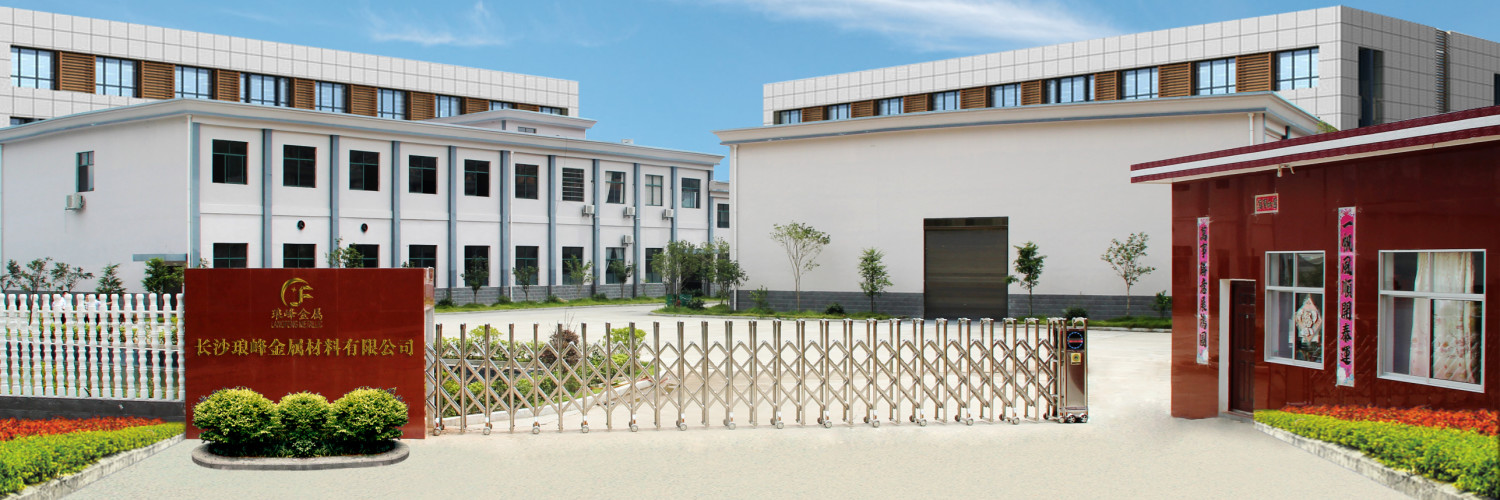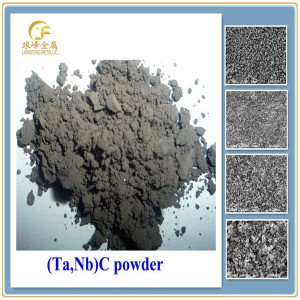We adopt tungsten powder (W powder), rather than the WC, to produce compound carbide powder. Tungsten powder is of original 2-3μm powder. In my opinion, the adoption of W powder is not just to reduce costs, there are several advantages:
- It canmake a more complete lattice and higher solubility of compound carbide powder.The existing production process is: blending WC + TiO2 + C, then sintering under high temperature. Because WC do not dissolve into Tic as a whole part, the WC decompose into W and C before respective dissolution. At the same time, there are two kinds of solution, W into TiC is of substitutional solid solution, while TiC is of interstitial solid solution.Then there will be a problem, during the ingredients and mixing process, WC, TiO2, C is mechanical mixing and therefore, the carbon black distributes evenly around TiO2 and WC. As we know, the deoxidation and carbonization of TiO2 require a lot of carbide black, and WC itself doesn’t need carbon black. Thus, in a limited time and temperature, carbon black cannot fully complete the deoxidation and carbonization of TiO2, and the solid solution with WC.Especially in the case of containing Ta, Nb, and the effect is worse.
But if W powder, the situation is quite different. Because, W powder itself needs carbon black for carbonization, which avoids in the excess carbon black, and further, the diffusion of carbon black lowers down. In addition,since the affinity of Ti and C is greater than the affinity of W and C, so, TiO2 is more likely to be the reduction and carbonization, so that the entire structure of the solid solution is more complete, more fully carbonized.
- the particle size is more evenand more homogenous
I think, it is better for mix to receive energy if W powder is adopted as raw material than WC. Because, WC is formed by W and C under high temperature. In the process of rising temperature, a considerable part of the WC will continue to gather in the solution before solid solution, thus resulting in uneven particle size. If the W powder is adopted and, as the temperature rises, a part of W dissolves into the TiC powder directly, and the other part, in the case of increasing the energy, combines with C to generate WC. This will reduce the particle growth, so that the solid solution is more homogenous.
The use of W powder can reduce the particle growth in the solid solution, which is well understood. Because at the same sintering temperature and timing condition, W powder requires energy for its carbonation.
For the above two points, I have done several times related contrast detection, it is indeed the case.
- The low contentthe free carbon and oxygen in solid solution.
Because of the use of W ,as the raw material powder, can facilitate the more fully and effectively reaction between the carbon black and TiO2, Ti, and W ,occur, thus, the content of free oxygen in solid solution is lowered.
- The better apparent density of powders
Due to the use of W powder, the amount of carbon black in ingredient increases, the size of the raw material is increases, thereby the loading amount reduces per time, and therefore the finished products are more loose and more easily broken, the apparent density is also better.


Be the first to comment on "Make Tungsten powder to replace Tungsten carbide powder in the selection for compound carbide powder"